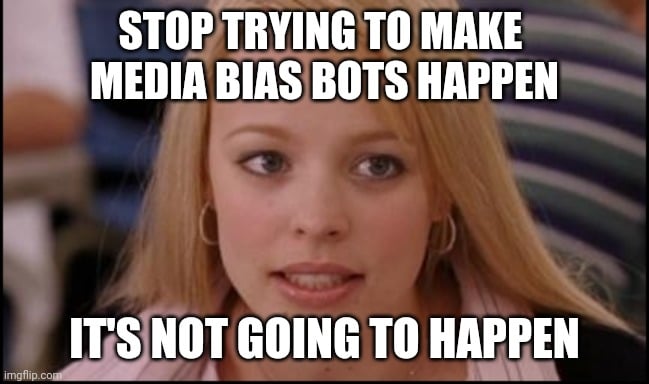Who fact-checks the fact-checkers? Fact-checking is an essential tool in fighting the waves of fake news polluting the public discourse. But if that fact-checking is partisan, then it only acerbates the problem of people divided on the basics of a shared reality.
This is why a consortium of fact-checking institutions have joined together to form the International Fact-Checking Network (IFCN), and laid out a code of principles. You can find a list of signatories as well as vetted organizations on their website.
MBFC is not a signatory to the IFCN code of principles. As a partisan organization, it violates the standards that journalists have recognized as essential to restoring trust in the veracity of the news. I've spoken with @[email protected] about this issue, and his response has been that he will continue to use his tool despite its flaws until something better materializes because the API is free and easy to use. This is like searching for a lost wallet far from where you lost it because the light from the nearby street lamp is better. He is motivated to disregard the harm he is doing to [email protected], because he doesn't want to pay for the work of actual fact-checkers, and has little regard for the many voices who have spoken out against it in his community.
By giving MBFC another platform to increase its exposure, you are repeating his mistake. Partisan fact-checking sites are worse than no fact-checking at all. Just like how the proliferation of fake news undermines the authority of journalism, the growing popularity of a fact-checking site by a political hack like Dave M. Van Zandt undermines the authority of non-partisan fact-checking institutions in the public consciousness.
